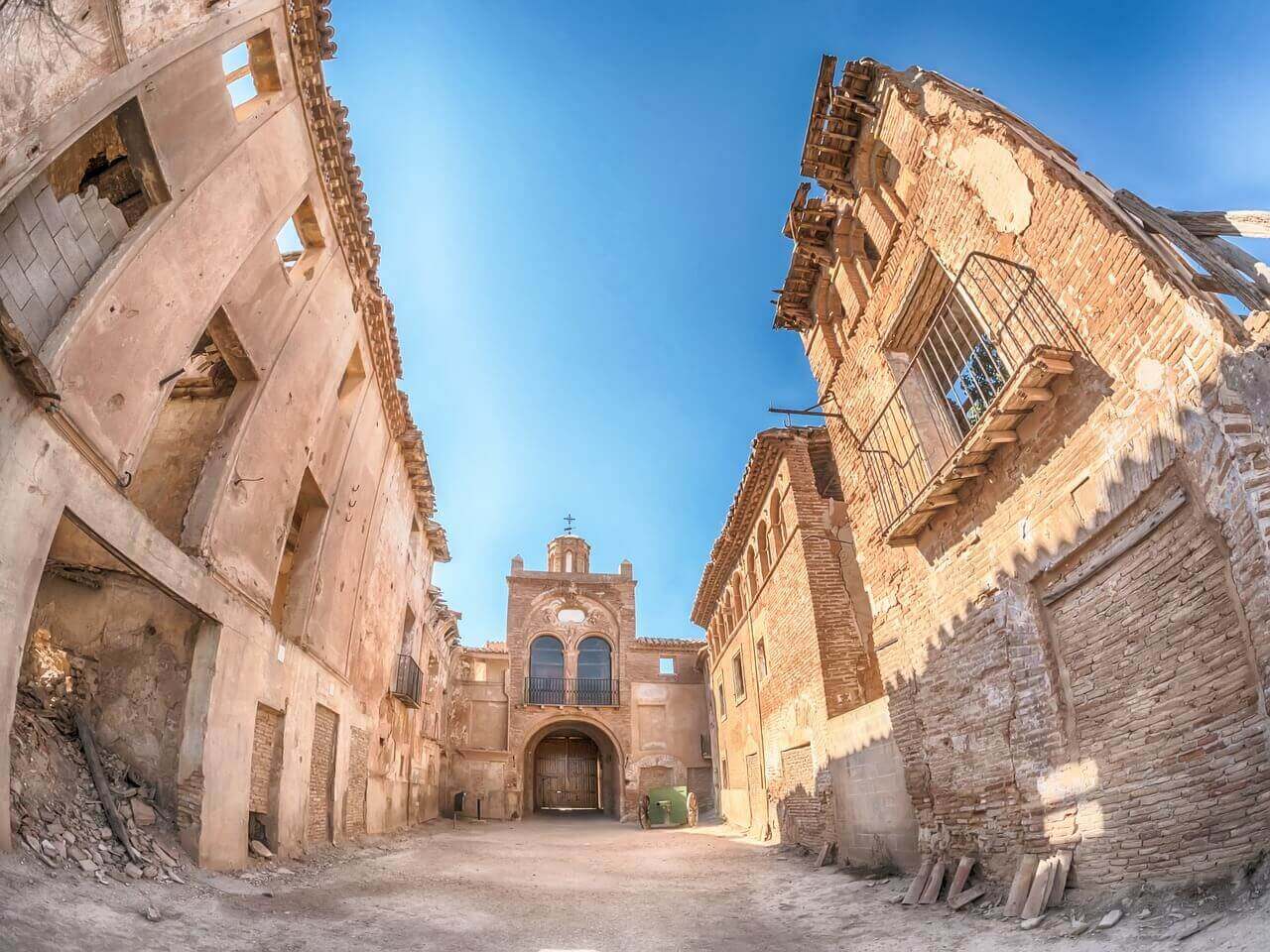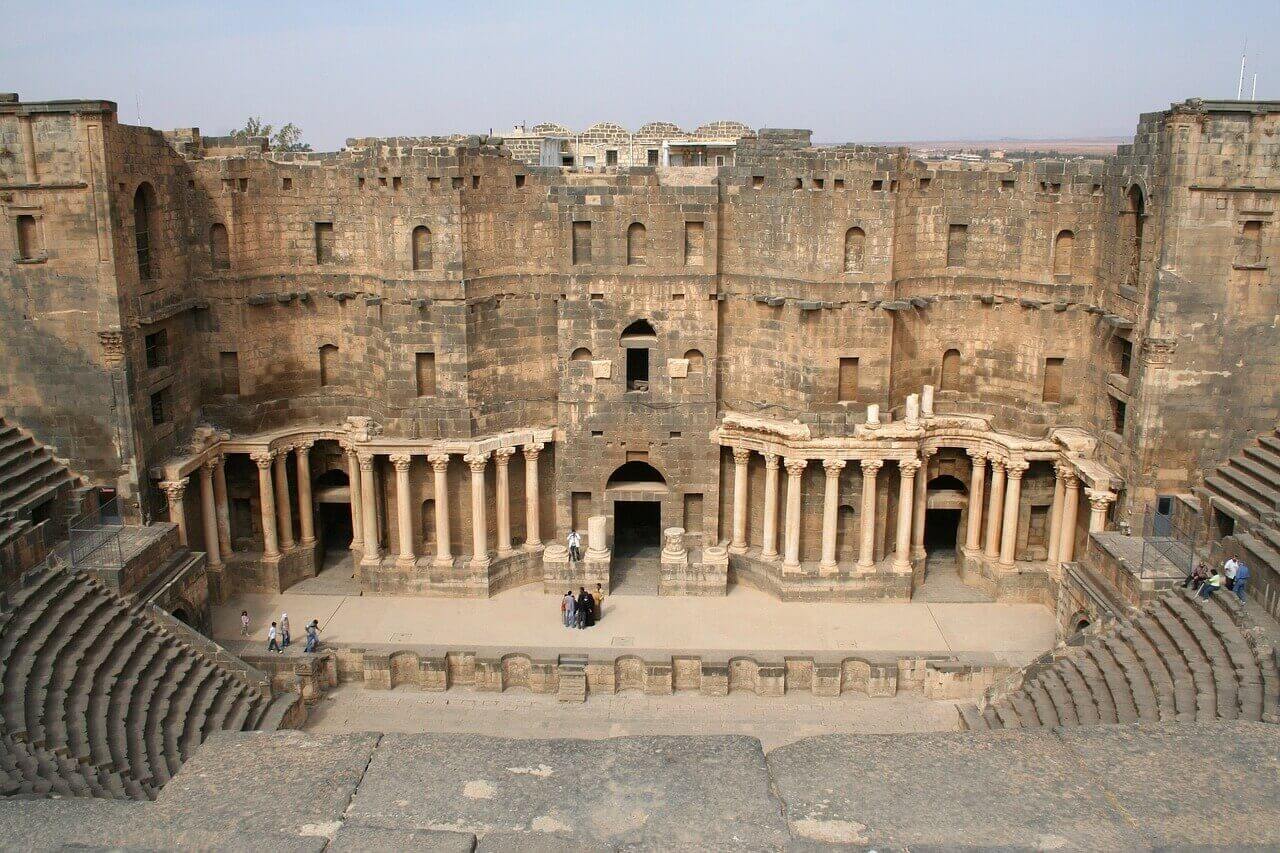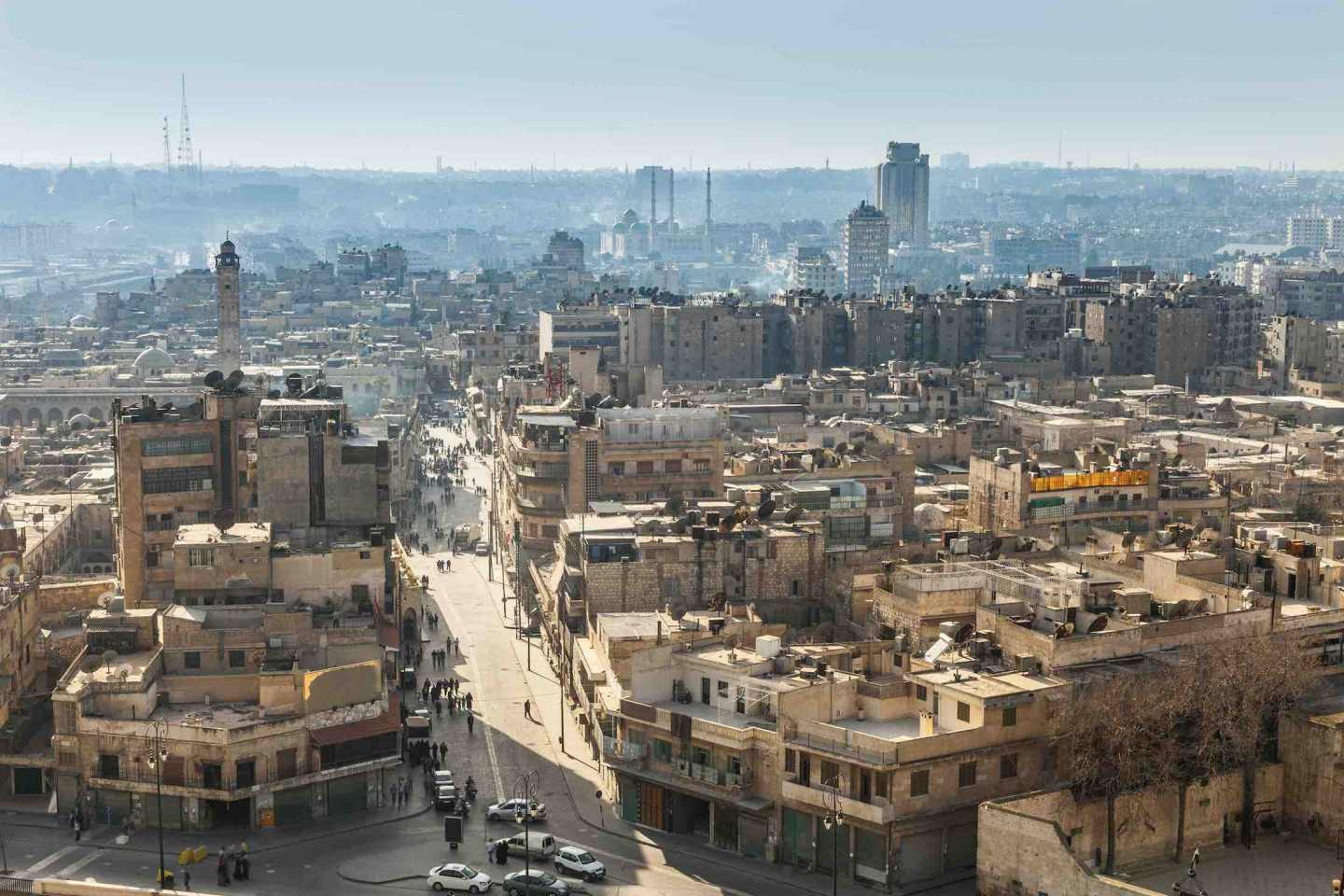Marktonderzoek in Syrië
How can businesses decipher the ever-changing landscape of Syria’s market in a country marked by political upheaval and economic fluctuations? Market research in Syria guides strategic decisions, from understanding consumer behavior to identifying emerging trends.
What Is Market Research in Syria?
Market research in Syria studies the country’s economic environment, consumer behavior, competitive landscape, and regulatory framework. It involves gathering, analyzing, and interpreting data to gain insights into market dynamics and opportunities.
What Are the Benefits of Market Research in Syria?
Market research in Syria offers a range of benefits for businesses seeking to navigate the complexities of the market and achieve their objectives. Here are some key advantages:
- Geïnformeerde besluitvorming: Market research in Syria empowers businesses to make informed decisions regarding product development, marketing strategies, and market expansion initiatives by providing valuable insights into market dynamics, consumer preferences, and the competitive landscape.
- Risicobeperking: Conducting thorough market research helps businesses identify potential risks and challenges in the Syrian market, enabling proactive risk management strategies to minimize negative impacts on operations and investments.
- Market Entry Optimization: Market research in Syria assists businesses in optimizing their market entry strategies by providing insights into market demand, competitor positioning, regulatory requirements, and consumer behavior. It enables businesses to tailor their approach for maximum effectiveness and efficiency.
- Resource Allocation Efficiency: Market research helps businesses allocate resources more efficiently by focusing investments on areas with the highest return potential. Based on research findings, businesses can optimize resource allocation strategies by prioritizing market segments, product features, and marketing channels.
When to Conduct Market Research in Syria

Before entering the Syrian market, businesses should conduct comprehensive market research to assess market demand, competitive landscape, regulatory requirements, and consumer preferences. This enables businesses to develop informed market entry strategies and mitigate risks associated with market entry.
Moreover, ongoing marktonderzoek is necessary to monitor competitors’ activities, identify emerging trends, and benchmark performance in the Syrian market. By staying abreast of competitor strategies and market developments, businesses can adapt and maintain a competitive edge.
Expected Results from SIS International’s Market Research in Syria
SIS International’s market research in Syria offers businesses comprehensive insights and strategic guidance to navigate the Syrian market effectively. Through our tailored research methodologies and in-depth analysis, we aim to empower businesses with the knowledge and insights they need to succeed. Key expected results from our market research services include:
Reduced Risk:
Our research services help businesses mitigate risks associated with market entry, expansion, and strategic decision-making in Syria by providing accurate and timely market intelligence.
Verhoogde inkomsten:
Through our insights into market trends, consumer preferences, and competitive dynamics, we enable businesses to identify revenue-generating opportunities and optimize their market strategies for maximum impact.
Kostenbesparingen:
SIS Internationaal help businesses optimize resource allocation and investment decisions, resulting in cost savings and improved efficiency in market operations.
Tijdsbesparing:
Door gebruik te maken van SIS expertise and resources, businesses can expedite the market research process and accelerate their entry or expansion into the Syrian market, saving valuable time and resources.
Versnelde groei en innovatie:
Through our market insights and strategic recommendations, we help businesses innovate and adapt to changing market conditions, driving sustainable growth and fostering a culture of innovation within organizations.
Syria is a Middle Eastern country that borders Lebanon.
This state has many high mountains, deserts, and fertile plains. It is also home to many religious groups. Syria is the only country that supports the Ba’athist ideology. It has many ancient sites of empires and kingdoms, which is unsurprising. The country is so old, even the Bible mentions it. The capital, Damascus, is also one of the ancient cities.
Syria gained statehood in the mid-20th century after centuries of Ottoman rule. The country also had a brief period under the French mandate. It became a state on October 24, 1945, when it joined the United Nations.
The Syrian civil war began on March 15, 2011. This war came right after the so-called “Arab Spring.” It started when the people demanded that the President resign. After months of battling, the protest turned into an armed uprising.
Buurten

The state has 14 governorates (similar to provinces), which are further subdivided into 65 districts. Each district has its capital and center. One city (Rif Dimashq) has no official center, but its base is in Damascus.
Some cities that serve as centers and districts:
- Aleppo
- Damascus
- Daraa
- Hama
- Homs
Main Tourist Attractions in Syria
Despite the challenges of years of conflict, Syria boasts a rich cultural heritage and a wealth of historical sites that continue attracting tourists worldwide. Here are some of the most important tourist attractions in Syria:
- Palmyra: Palmyra is an ancient city located in the Syrian desert. It was once a thriving center of trade and culture, renowned for its well-preserved ruins, including the Temple of Bel, the Arch of Triumph, and the Roman Theater.
- Damascus: As one of the oldest continuously inhabited cities in the world, Damascus is steeped in history and tradition. Visitors can explore its ancient streets, marvel at the Umayyad Mosque, stroll through the bustling markets of the Old City, and visit the Azem Palace and the National Museum of Damascus.
- Krak des Chevaliers: This imposing Crusader castle is one of the best-preserved medieval castles in the world. Located near the city of Homs, Krak des Chevaliers offers visitors a glimpse into the military architecture of the Crusades era and provides panoramic views of the surrounding landscape.
- Bosra: A UNESCO World Heritage Site, Bosra is home to one of the best-preserved Roman theaters in the world. Visitors can explore the ancient city’s well-preserved ruins, including the Roman baths, the citadel, and the Byzantine-era churches.
- Aleppo: Despite significant damage during the conflict, Aleppo remains one of Syria’s most important cultural and historical centers.
Belangrijkste industrieën

Syria produces oil, textiles, beverages, tobacco, and cement. Its citizens also do food processing and phosphate rock mining. Other key industries are oilseed crushing and car assembly. Syria also produces wool, cotton, natural silk, and nylon textiles. Most mills are in Aleppo, Damascus, Homs, and Hamah. Also, Damascus has some tech engineering companies.
The state is famous for its textiles. Yet, the biggest exports are animal/vegetable fats, oils, and waxes. They amount to one-fifth of all exports.
Trends
People in Syria are fighting for human rights, and many are refugees in need of help. Before the civil war, the two main products were agriculture and oil, which made up one-half of the GDP.
Market Research in Syria: Consumer Base
Syria is still facing problems brought on by the civil war: a rough period in its history. It limits the state’s growth chances because the lengthy civil war has caused a near end to its output and damaged economic freedom.
Despite the setbacks, the state has seen gradual growth. Agriculture continues to be one of the country’s high-priority industries.
Reasons to Grow a Business in Syria
Starting a business in Syria takes only seven steps. Most of these steps entail consulting with the government.
Ideas for businesses aren’t hard to come by. The government is trying to move away from regular economic activities. It wants to move away from industries like agriculture and oil. New sectors such as natural gas and tourism are becoming a primary focus. The country is also working on producing natural gas. It has vast reserves of this resource.
Growing a business in Syria won’t be easy, but it will pay off. You will never be short of a big market and willing workers. With the help of the government, your company can be a success.
Marktdrivers
In understanding the Syrian market, it’s crucial to analyze the factors that drive its dynamics and influence business operations. Despite challenges, several drivers contribute to market activity and shape business opportunities in Syria:
- Reconstruction Efforts: Following years of conflict, reconstruction efforts present significant opportunities for businesses involved in infrastructure development, construction materials, and engineering services. International aid and investment in reconstruction projects drive demand for goods and services, stimulating economic activity.
- Youthful Population: Syria is relatively young, with a large percentage under 30. This demographic trend creates opportunities for businesses targeting youth-oriented products and services, including technology, entertainment, and fashion.
- Natuurlijke hulpbronnen: Syria possesses significant natural resources, including oil, natural gas, and fertile agricultural land. Despite resource extraction and management challenges, these resources contribute to economic activity and investment opportunities in sectors such as energy, agriculture, and mining.
Marktbeperkingen
While Syria presents business opportunities, several challenges and constraints hinder market growth and business operations. Understanding these restraints is crucial for businesses to navigate the market effectively and mitigate risks:
- Geopolitical Instability: Persistent geopolitical tensions and regional conflicts have contributed to instability in Syria, impacting business confidence, investment, and market activity. Political uncertainty and security risks deter foreign investment and disrupt business operations, posing significant challenges for businesses operating in the country.
- Infrastructure Damage: The protracted conflict in Syria has resulted in widespread damage to infrastructure, including roads, utilities, and public facilities. This infrastructure damage hampers business operations, logistics, and supply chains, increasing costs and limiting market access in affected areas.
- Humanitarian Crisis: The conflict in Syria has led to a humanitarian crisis, with millions of people displaced, and basic needs such as food, water, and healthcare are often unmet. Humanitarian challenges, including access restrictions, social instability, and workforce displacement, impact business operations and consumer purchasing power, constraining market demand and growth potential.
Market Research in Syria: SWOT Analysis

A SWOT analysis provides a comprehensive framework for evaluating the strengths, weaknesses, opportunities, and threats facing businesses in the Syrian market:
Sterke punten:
-
- Rich Cultural Heritage: Syria boasts a rich cultural and historical significance, with iconic landmarks and archaeological sites attracting tourists and visitors worldwide.
- Strategische locatie: Situated at the crossroads of the Middle East, Syria’s strategic location offers access to regional markets and trade routes, facilitating business opportunities and trade partnerships.
- Natuurlijke hulpbronnen: Syria possesses significant natural resources, including oil, natural gas, and fertile agricultural land, which provide opportunities for investment and economic development in the energy, agriculture, and mining sectors.
Zwakke punten:
-
- Geopolitical Instability: Persistent geopolitical tensions and regional conflicts have contributed to instability in Syria, impacting business confidence, investment, and market activity.
- Economische onzekerheid: Years of conflict and financial sanctions have led to economic instability, currency depreciation, and inflation, complicating business planning and investment decisions.
- Infrastructure Damage: Widespread damage to infrastructure, including roads, utilities, and public facilities, hampers business operations, logistics, and supply chains, increasing costs and limiting market access.
Mogelijkheden:
-
- Reconstruction Efforts: Reconstruction projects, supported by international aid and investment, present significant opportunities for businesses involved in infrastructure development, construction materials, and engineering services.
- Diversification Initiatives: Syria is increasingly focused on diversifying its economy beyond traditional sectors, promoting growth in tourism, technology, and manufacturing, and creating opportunities for businesses to diversify their operations.
- Marktpotentieel: Despite challenges, Syria’s market offers untapped potential in various sectors, including manufacturing, construction, energy, tourism, and healthcare, presenting opportunities for investment and growth.
Bedreigingen:
-
- Geopolitical Risks: Ongoing geopolitical tensions and regional conflicts threaten stability and security, impacting business operations, investment, and market activity.
- Economic Challenges: Economic uncertainty, currency depreciation, and inflationary pressures threaten business viability, consumer purchasing power, and market demand, affecting profitability and growth prospects.
- Regulatory Constraints: Syria’s complex regulatory environment, bureaucratic hurdles, and legal risks create challenges for businesses in compliance, licensing, and contractual agreements, increasing operational costs and delaying business activities.
Onze vestigingslocatie in New York
11 E 22nd Street, 2e verdieping, New York, NY 10010 T: +1(212) 505-6805
Over SIS Internationaal
SIS Internationaal biedt kwantitatief, kwalitatief en strategisch onderzoek. Wij bieden data, tools, strategieën, rapporten en inzichten voor besluitvorming. Wij voeren ook interviews, enquêtes, focusgroepen en andere marktonderzoeksmethoden en -benaderingen uit. Neem contact met ons op voor uw volgende marktonderzoeksproject.


